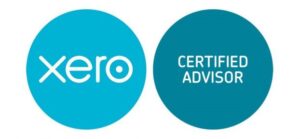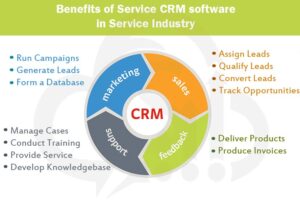How to Start an E-Commerce Business in Singapore
How can you start an e-commerce business to sell products in Singapore? It is not as difficult as it may seem. There are many e-commerce platforms online that offer e-commerce solutions to help with just about every step of the process, including online advertising, marketing, e-mailing and warehouse management. If you’re considering starting an e-commerce business in Singapore, this blog post will give you all of the information you need to get started!
Do You Need A License To Do Online Business In Singapore?
Generally, no license is required for doing e-commerce business in Singapore. This may vary depending on the product you are selling. For example, if you are selling alcohol there may be certain requirements that the e-commerce platform will need to follow.
The professional and trade licenses required will depend on the products and services you are selling.
Decide What To Sell On Your New Business
Online Store

As part of your business plan, you will need to decide what products or services you want to sell. Will your e-commerce platform be a general e-commerce business that sells multiple types of merchandise? Or do you have a specific niche market in mind such as clothing or food items only? Who is your target audience?
Depending on your business idea, there are certain e-commerce platforms that are better suited. You may want to consider starting your own e-commerce site. This will give you more control over the look and feel of your site, as well as what products you decide to sell.
Choose A Business Model For Your Ecommerce Business
There is generally 3 modes of corporate structure you can choose from for your new e-commerce business.
In most cases, we would always advise our clients to go with option 1. A private limited company offers more liability protection to the shareholders and directors.
It also gives a greater degree of flexibility as your business scales and you bring in new investors and shareholders in the future.
To understand more on the differences between the 3, you might wish to check out our earlier articles on whether it is better to set up a private limited company or sole-proprietorship in Singapore?
Incorporate And Start E-Commerce Business
After you’ve decided on the e-commerce platform and business model, it’s time to incorporate your e-commerce business in Singapore.
Over here at Sg Company Services, we provide a one-stop solution for all your incorporation needs.
The process to incorporate a business in Singapore is not complicated. We can also assist with the opening of the business bank account for your own e-commerce store.
Check out this article to find out more about the requirements for incorporating a business in Singapore.
Choose Your E-Commerce Platform

With the incorporation done, you are ready to start running your business!
The next thing you need to decide is the platform on which you will be selling your products/services.
Will it be on 3rd party platforms such as Amazon, Lazada and Shopee or do you intend to set up your own e-shop?
Most e-commerce platforms such as Amazon and Shopee offer e-commerce solutions from e-mailing to marketing, so you can sell almost anything on these platforms. The downside is that they have a lot of competition.
3rd party e-commerce platforms also have their own terms and conditions which you should be familiar with before signing up, as this will affect your ability to sell your products or services. All 3rd party e-commerce platforms do charge a commission on every sale you make, thus lowering your profit margins.
In the event of too many customer complaints, you will run the risk of having your seller’s account being suspended or terminated.
If you decide to set up your own e-commerce website, it will require more effort on your part as you need to design and develop the website yourself or hire a web developer.
You also have to worry about hosting, domain name registration and SSL certificates. However, this gives you more control over how your e-commerce business looks, as well as the products you decide to sell. You are also not at the mercy of terms and conditions set by e-commerce platforms.
More importantly, you are able to create a brand to develop customer loyalty. With your own website, you can also install marketing tools to analyze and track customers behaviour so as to optimise your business with data analytics.
Set Up Payment System

The next step is to set up your payment system. One of the most popular e-commerce payment gateways in Singapore is Paypal and Stripe.
It is easy to use and integrates with a lot of e-commerce platforms. It also offers buyers protection, so in the event that you do not deliver the product or services as promised, they can get a refund.
Paypal and Stripe do charge a commission on every transaction.
For businesses that sell primarily locally, it is also common for sellers to accept Paynow, a local interbank payment method that is instant and at zero transaction cost.
Set Up Accounting System

The next step is to set up an accounting system. This will allow you to keep track of your expenses and income, as well as tax payments.
Popular accounting software for small businesses in Singapore is Xero. It is cloud-based and easy to use, making it a good option for e-commerce businesses that are just starting out.
Xero also offers a lot of features such as invoicing, tracking expenses and staff payments. It also integrates with Paypal and Stripe so that you can keep track of your e-commerce business’ finances in one place.
For businesses that want to solely focus on growing their business, they can consider outsourcing their accounting to certified accountants.
Set Up Customer Relationship Management System

The final step is to set up a customer relationship management (CRM) system. A CRM will help you keep track of your customers’ contact information, purchase history and any other interactions you have with them.
This will come in handy especially if you are looking to target your marketing efforts to specific target customers.
Popular CRM software for small businesses in Singapore is Salesforce. It offers a lot of features such as contact management, lead tracking and opportunity management.
Salesforce also integrates with Paypal and Stripe so that you can keep track of your e-commerce business’ finances in one place.
You should be able to start an e-commerce business in Singapore with the right tools. There are many platforms online that offer both software and other services to help you get started, including warehouse management, marketing, etc.
If you’re looking for a way to make money from home or want to own your own company one day, we can help!
Contact us today and we’ll give you all of the information on how starting your own e-commerce business is easier than it may seem.
Download the Telegram app and follow us for the latest updates: https://t.me/sgcompanyservices
